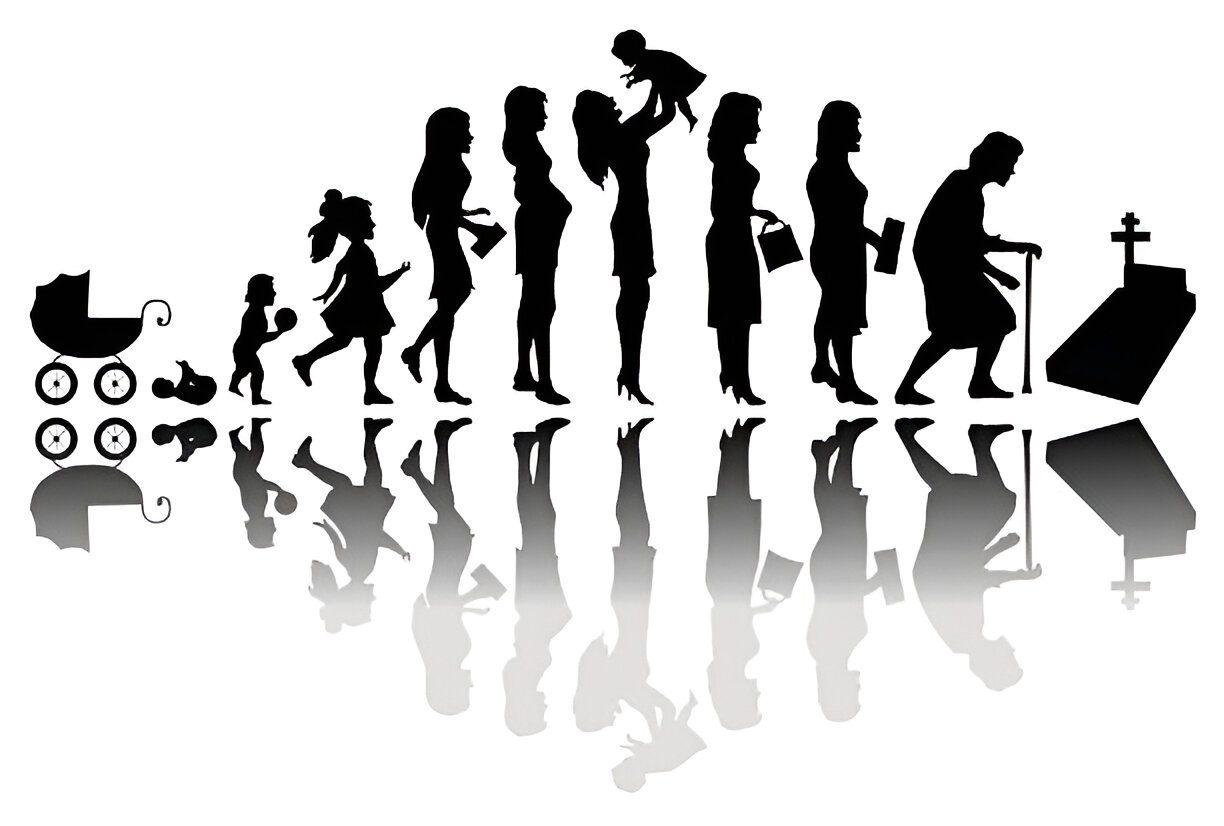When the Mirror Reflects a Stranger
Grieving the loss of your former self can be a deeply isolating process—one that often goes unrecognized. Whether sparked by illness, trauma, or any life-altering shift, this journey involves coming to terms with who you were and who you must now become. Studies show that accepting these changes is essential to forging a life that feels authentic and fulfilling.
“Realizing I was mourning who I used to be was the first step toward loving who I am now.”
A Quiet Farewell to Who You Were

The Unspoken Mourning
Grieving the loss of your former self is a deeply personal yet often unspoken experience. Significant life events—such as illness, trauma, aging, or transformative changes—can create a profound sense of mourning for the person you once were. This grief recognizes the loss of past identities, roles, and capabilities that can no longer define you. Research indicates that grieving oneself can be as emotionally intense as mourning others, requiring a process of reflection, letting go, and eventual adaptation to a new self.
Grieving the loss of your former self is a deeply personal yet often unspoken experience. Significant life events—such as illness, trauma, aging, or transformative changes—can create a profound sense of mourning for the person you once were. This grief recognizes the loss of past identities, roles, and capabilities that can no longer define you. Research indicates that grieving oneself can be as emotionally intense as mourning others, requiring a process of reflection, letting go, and eventual adaptation to a new self.
Understanding the Grief for a Former Self
Identity and Change
Our sense of self evolves, shaped by experiences, relationships, and physical realities. When these change significantly, the disconnection from our past identity can feel like losing a part of ourselves.
Multiple Losses
Grief may arise from losing physical abilities, mental clarity, career identities, or even the perception of youth or beauty. Each loss represents a piece of the larger self.
Emotional Complexity
This grief often brings layered emotions: nostalgia for what was, sadness for what is gone, anger over what changed, and sometimes even relief at leaving certain aspects behind.
Coping Strategies
Reflective Practices
Engage in journaling, meditation, or creative expression to process emotions. These practices can help uncover insights about your journey and promote self-acceptance.
Therapeutic Support
Working with a therapist can provide tools to navigate identity shifts, process loss, and rebuild a positive sense of self.
Rituals of Letting Go
Create rituals to honor and release your former self, such as writing a farewell letter, celebrating milestones of transformation, or symbolically retiring objects that represent the past.
Reconnecting with Core Values
Identify the values that have remained consistent through change. Anchoring yourself in these can provide a sense of continuity and stability.
Reinventing Identity
Explore new passions, roles, or communities that align with your present self. Embrace reinvention as an opportunity to rediscover purpose and belonging.
“Somewhere between what we imagined and what is lies the fertile ground of what could be.” — Avery L.
The Grieving Process
- Acknowledgment
Recognizing the legitimacy of your grief is essential. Allow yourself to mourn without judgment, understanding that this process is a natural response to change. - The Grief Cycle
You may experience denial, anger, bargaining, depression, and acceptance—sometimes cycling through these stages repeatedly as new changes emerge.
Navigating Social Relationships
- Communicating Your Experience
Share your journey with trusted friends or loved ones who can offer understanding and support. This reduces feelings of isolation and fosters connection. - New Social Circles
Consider finding communities that align with your current self. Building relationships where you feel understood can provide emotional reinforcement.
Living with the New Self
Self-Compassion
Be patient and kind to yourself as you adapt. Acknowledge your feelings without criticism and give yourself permission to take time.
Finding Meaning in Change
Redefine what success and fulfillment mean in your new reality. Seek wisdom or strength in the person you are becoming.
Celebrating Small Wins
Honor the accomplishments of your current self, no matter how modest. These victories reinforce your evolving identity.
Challenges and Growth
- The Challenge of Acceptance
True acceptance is recognizing change as part of your story, even if it remains difficult at times. It’s not about erasing grief but integrating it into a broader narrative. - Opportunities for Growth
Grieving your former self can lead to profound personal development. You may discover resilience, deepen your self-awareness, or feel liberated from outdated expectations.
Things To Try This Week!
- Memory Box: Collect items symbolic of your former self—a photo, a keepsake, a token of past success. Honor them in a dedicated space, recognizing the journey you’ve traveled.
- Revisit a Value: Pick one core value—like creativity or compassion—and explore new ways to embody it in your current life. This bridges continuity between your past and present identities.
- Supportive Dialogue: Schedule a conversation with a trusted friend or counselor specifically about your evolving self. Sharing your grief can lighten its load and spark fresh insights.
Conclusion
Grieving the loss of your former self is not about forgetting who you were but about honoring that version of yourself as a vital part of your story. This process opens the door to embracing your present and future selves with compassion and curiosity. Through reflection, adaptation, and self-compassion, you can rediscover meaning and joy in ways that align with the person you are today. While you can’t return to the past, you carry forward the strength, lessons, and memories it gave you, shaping a life that remains authentic and fulfilling.
Letting go of who you were doesn’t mean losing the essence of your life’s story—it means honoring the layers that shaped you while welcoming the possibilities that lie ahead.
In our All Things Cherish collection, uncover reflections, keepsakes, and thoughtful prompts designed to help you hold space for every version of yourself. Embrace the path of self-discovery, cherishing the echoes of your past as they guide your unfolding future.
Finding Comfort, One Heartfelt Step at a Time
No matter where life takes you, caring for your emotional well-being should always have a place in your daily routine. Our All Things Cherish collection offers soothing keepsakes, reflective prompts, and heartfelt resources crafted to nurture hope in every season. Let us walk beside you on the path to renewed strength and lasting peace—click here to explore and embrace all that cherishing yourself can bring.
More Reflections, More Growth
Loss is complex, and the road to healing is different for everyone. These reflections offer insight, support, and guidance as you navigate this journey.
Coping with Moving Away from Loved Ones
Moving away from loved ones can create a profound emotional void. However, with intentional effort, you can preserve relationships, manage loneliness, and thrive in your new surroundings. This guide offers actionable strategies to cope with the emotional weight of distance and maintain strong connections.
Starting Over After Losing Your Home: Finding Strength in Every New Beginning
Losing your home is a deeply personal loss, one that touches your identity and security. This guide explores ways to rebuild your life after such a profound change, from emotional resilience to finding a new place to call home, all while moving forward with hope.
Healing After Displacement: Finding Hope and Rebuilding Roots
Displacement shakes your foundation, leaving emotional, psychological, and physical challenges in its wake. This guide offers support, with practical steps to heal, rebuild, and rediscover a sense of stability and purpose amidst uncertainty.
When Love Hurts: Grieving the End of a Relationship
Heartbreak grief is a profound response to love lost. This guide explores its emotional and psychological impact, offering compassionate strategies for healing and renewal.
Relearning Life: Healing After Losing a Spouse
Healing after losing a spouse is a deeply personal journey. This guide offers compassionate strategies for navigating grief, honoring their memory, and rediscovering yourself.
Where Grief Finds No Words: Honoring Unspoken Losses
Unspoken losses—miscarriage, estrangement, unrealized dreams—often remain hidden, leaving those affected isolated in their grief. Learn how to honor these silent struggles, validate their impact, and embrace healing.
Grieving Financial Loss and Finding Stability: Rebuilding Hope and Confidence
Financial loss affects more than your finances—it shakes your sense of identity and security. This guide explores how to process the grief, take practical recovery steps, and find emotional resilience during challenging times.
Coping with Sudden Financial Changes: Finding Stability in Uncertain Times
Sudden financial changes can feel overwhelming, but with intentional steps, you can regain control and stability. Explore practical strategies to manage your budget, reduce stress, and rebuild confidence for a stronger future.
Rebuilding After Financial Setbacks: Discovering Resilience and New Possibilities
Financial setbacks can feel like losing your footing, but they’re also opportunities to reinvent and rebuild. Learn creative strategies for financial recovery, from innovative income streams to emotional resilience techniques, and create a future rooted in stability and growth.
Explore Journeys of Healing and Solace:
Discover dedicated spaces that offer understanding, guidance, and connection through grief. From the loss of loved ones to life’s challenging transitions, each category provides a pathway to reflect, connect, and find peace in shared experiences.


























